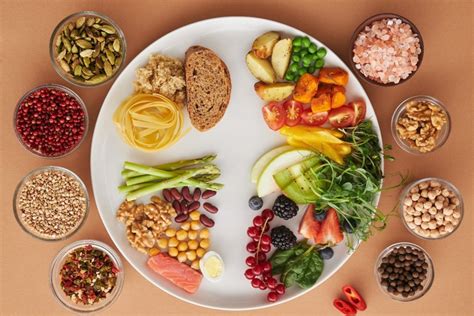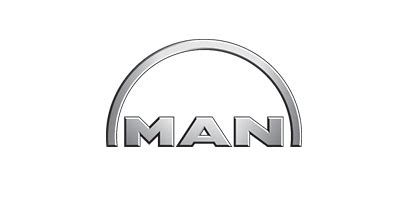Optimize male testosterone: what lifestyle changes boost peak performance?

Understanding Testosterone and Its Importance
Testosterone, often hailed as the cornerstone of male vitality, plays a crucial role in far more than just libido and muscle mass. This vital hormone influences energy levels, mood stability, bone density, cognitive function, and even cardiovascular health. As men age, testosterone levels naturally decline, but modern lifestyles can accelerate this process, leading to a host of undesirable symptoms, including fatigue, decreased strength, reduced mental clarity, and diminished performance. The good news is that many of these declines can be significantly mitigated, and even reversed, through targeted lifestyle adjustments.
Optimizing your testosterone naturally isn’t about quick fixes or dubious supplements; it’s about building a foundation of healthy habits that support your body’s innate ability to produce this essential hormone. By focusing on key areas – nutrition, exercise, sleep, and stress management – men can unlock their full potential and achieve peak physical and mental performance.
Fueling Your Hormones: The Power of Nutrition
What you eat directly impacts your hormonal balance. A diet rich in whole foods and essential nutrients is paramount for healthy testosterone production. Conversely, processed foods, excessive sugars, and unhealthy fats can disrupt endocrine function.
Nutrient-Dense Foods
Prioritize lean proteins (grass-fed beef, poultry, fish), which provide the amino acids necessary for hormone synthesis. Include a wide array of colorful vegetables and fruits for their antioxidant properties, which combat oxidative stress that can damage Leydig cells (the testosterone-producing cells in the testes). Fiber-rich foods also support gut health, which has indirect but significant links to hormonal regulation.
Healthy Fats Are Your Friends
Contrary to outdated advice, healthy fats are essential for testosterone production. Cholesterol, the precursor to testosterone, is derived from dietary fats. Incorporate monounsaturated fats (avocados, olive oil, nuts) and saturated fats (from quality sources like coconut oil, grass-fed butter) in moderation. Omega-3 fatty acids, found in fatty fish like salmon, flaxseeds, and chia seeds, also play a role in reducing inflammation and supporting overall cellular health.
Limit Processed Foods and Sugar
These are the enemies of healthy hormones. High sugar intake leads to insulin resistance, which is detrimental to testosterone levels. Processed foods often contain trans fats and other chemicals that can act as endocrine disruptors, further hindering your body’s ability to produce testosterone efficiently.

Move for More T: Strategic Exercise
Exercise is a potent stimulator of testosterone, but not all workouts are created equal. The right kind of physical activity can significantly boost your levels, while overtraining can have the opposite effect.
Strength Training is King
Lifting heavy weights, particularly compound movements like squats, deadlifts, bench presses, and overhead presses, has been shown to elicit the greatest testosterone response. Focus on progressive overload, gradually increasing the weight or resistance over time, and ensure you’re working large muscle groups.
High-Intensity Interval Training (HIIT)
Short bursts of intense exercise followed by brief recovery periods can also effectively raise testosterone. HIIT workouts are efficient and can improve cardiovascular health while promoting hormonal balance.
Avoid Overtraining
While exercise is beneficial, excessive or prolonged endurance training without adequate recovery can elevate cortisol (the stress hormone) and suppress testosterone. Listen to your body, schedule rest days, and consider incorporating active recovery activities like walking or yoga.
The Power of Rest: Prioritize Quality Sleep
Sleep is when your body repairs, rebuilds, and produces hormones. Chronic sleep deprivation is one of the quickest ways to tank your testosterone levels, regardless of diet or exercise.
Aim for 7-9 Hours
Most men need 7-9 hours of high-quality sleep per night. Studies have shown that even a week of restricted sleep can significantly reduce morning testosterone levels in healthy young men. Create a consistent sleep schedule, going to bed and waking up at the same time each day, even on weekends.
Optimize Your Sleep Environment
Ensure your bedroom is dark, quiet, and cool. Avoid screens (phones, tablets, TVs) at least an hour before bed, as the blue light emitted can interfere with melatonin production, the sleep hormone. Consider blackout curtains, earplugs, or a white noise machine if necessary.

Taming the Cortisol Beast: Stress Management
In our fast-paced world, chronic stress is pervasive. When you’re stressed, your body releases cortisol. High and sustained levels of cortisol can directly suppress testosterone production, creating a vicious cycle of fatigue and diminished performance.
Mindfulness and Relaxation Techniques
Incorporate stress-reducing practices into your daily routine. This could include meditation, deep breathing exercises, yoga, spending time in nature, or engaging in hobbies you enjoy. Even 10-15 minutes a day can make a significant difference.
Social Connection
Humans are social creatures. Meaningful social interactions and a strong support system can significantly reduce stress and promote overall well-being. Make time for friends, family, and community.

Other Key Lifestyle Factors
Limit Alcohol and Environmental Toxins
Excessive alcohol consumption can directly harm Leydig cells and interfere with the liver’s ability to process hormones. Similarly, exposure to endocrine-disrupting chemicals found in plastics (BPA, phthalates), pesticides, and certain personal care products can mimic or block hormones, negatively impacting testosterone levels. Opt for natural products and reduce plastic use where possible.
Ensure Adequate Vitamin D and Zinc
These two micronutrients are critical for testosterone production. Vitamin D, often called the ‘sunshine vitamin,’ is synthesized in the skin upon exposure to sunlight. Many men are deficient, especially in winter months; consider supplementation if your levels are low. Zinc is also essential for testosterone synthesis and is found in foods like oysters, red meat, nuts, and seeds.

The Holistic Approach: A Synergistic Effect
No single lifestyle change will magically optimize your testosterone. It’s the cumulative effect of consistently applying these principles that yields the most profound and sustainable results. Think of it as a holistic approach where each pillar of health supports the others.
By committing to a nutrient-rich diet, engaging in strategic exercise, prioritizing quality sleep, and effectively managing stress, you’re not just boosting testosterone; you’re investing in your overall health, energy, and mental acuity. These changes lead to a virtuous cycle where improved hormone levels enhance your ability to maintain these healthy habits, driving you towards peak performance in all aspects of life.
Conclusion: Reclaim Your Vitality
Optimizing male testosterone naturally is an empowering journey that puts you in control of your health and performance. By making conscious, sustainable lifestyle choices, you can positively influence your hormonal balance, leading to increased energy, strength, mental clarity, and an overall enhanced quality of life. Start small, stay consistent, and celebrate each step towards a healthier, more vibrant you. Your body has an incredible capacity for self-regulation; provide it with the right environment, and it will thrive.










